Success tips from Mountain CoLab
Running a co-working space has its challenges and its satisfactions
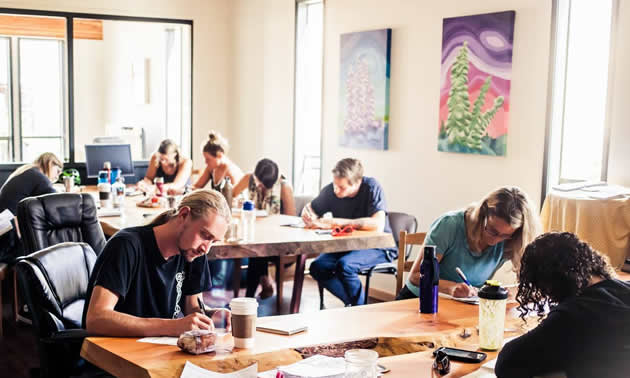
Revelstoke Mountain CoLab provides short- and long-term work space for established businesses and startups. — Photo courtesy Mountain CoLab
Revelstoke Mountain CoLab Cooperative in Revelstoke is a co-working space that grew out of a keen local need to have office space and equipment available to small businesses at a minimal cost. It opened in 2015.
For the first couple of years, Tim Auger was the operations manager, and he is the current vice-chair of the volunteer board of directors.
“Jean-Marc La Flamme of Startup Revelstoke and Greg Hoffart of Tree Construction decided to invest financially and make this happen,” Auger said. “They both wanted to provide themselves with work space, and they saw the bigger benefits to the business community and to Revelstoke.”
The colab incorporated in 2016 as a not-for-profit organization, as the founders wanted to share resources and keep costs for the space at a minimum, without the complications of trying to create profit.
For the first year, they had one simple rule for their members, and it distills into two words: Be respectful. The enterprise has grown now to the point where a more comprehensive user agreement is needed—more to help with administration than because there have been problems.
“Since opening we’ve had almost 150 people based here,” Auger said, “though of course not all at once—some of them were short-term and many are part-time. We fluctuate between 35 and 45 active members at any given point."
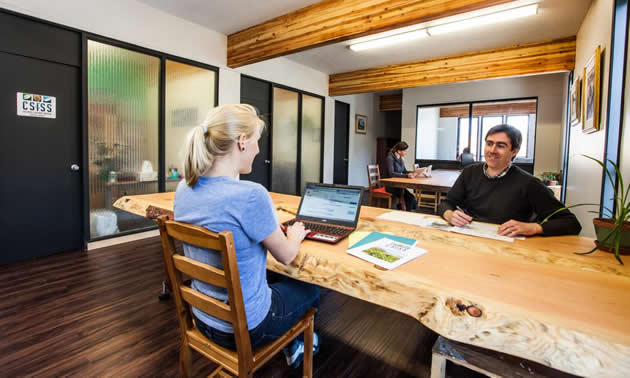
The work space at Revelstoke Mountain CoLab is available around the clock, every day. — Photo courtesy Mountain CoLab
Be informed, be realistic, look ahead
Auger offered some suggestions for others who might be considering starting a co-working space.
- Do not underestimate the cost of running the space. Have a frank, informed discussion about the ramifications of being a co-operative and a not-for-profit organization.
- Research the bigger, successful co-work spaces, and consider the cost of providing extras for potential tenants, like coffee, snacks, a kitchen, maybe beer on tap, a photocopier and a shared receptionist. People who come from big centres are used to those extras being part of what they’re paying for—they want more than just a hot desk.
- Set prices higher initially than you think you should. Devise at least a three-year budget and project the costs of more services and equipment that will be needed when growth happens. There’s insurance, there are automation fees for software, there’s always something.
- Engage your tenants. Perhaps write the tenant agreement to include a few hours of volunteer service that will help with the administrative functions of the colab.
Accommodate the community
By providing low-cost work space, Mountain CoLab is enabling people to stay in Revelstoke, and La Flamme noted that the colab is available to the entire community.
“Mountain CoLab features monthly events for the public,” he said, “including Innovation, Entrepreneur and Tech Nights. The global professionals include designers, builders, engineers, scientists, media, arts, accountants, lawyers, IT and developers who rally around important community development causes.”
“We also accommodate organizations that need extra space for short-term contract workers,” Auger said. “We’ve seen many of our tenants outgrow our space and leave us. We’re sad to see them go, but that’s kind of our purpose here, so we support them.”

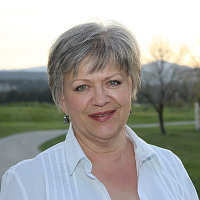

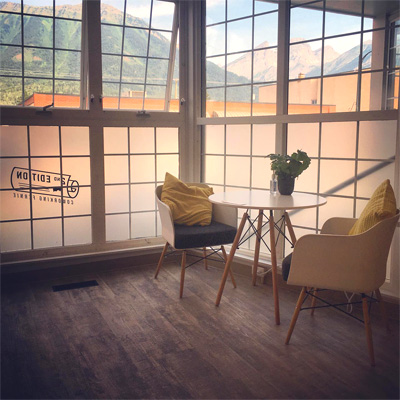
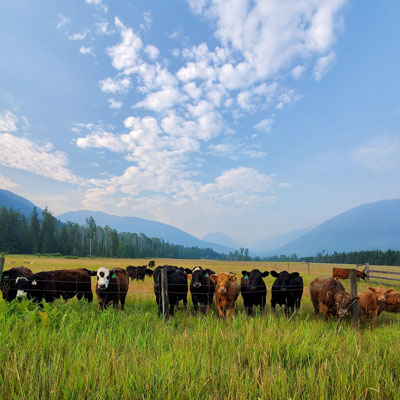

Comments